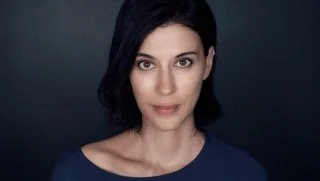Palestinian you should know: Cherien Dabis
The following was originally published in the Palestine in America Film Edition. Please support our work by ordering a print copy, downloading a digital edition or becoming a subscriber.
Cherien Dabis broke into the entertainment industry with the film Amreeka, which she wrote and directed in 2009–and she hasn't looked back. Most recently, the Palestinian-American actress and director is known for directing episodes of popular television shows “Ozark,”“Ramy” and Emmy-award winning “Only Murders in the Building.”
Dabis joined the Palestine in America podcast to discuss her upbringing, how it inspired her work and what it means to be a Palestinian in the entertainment industry.
Palestine in America (PiA): Where in Palestine are your parent(s) from?
Cherien Dabis (CB): My father is from a small village called Zababdeh next to Jenin in the north of the West Bank. My mother is Jordanian—born in Salt, Jordan. Though her family originally comes from Beit Chabab, a mountain village north of Beirut in Lebanon.
PiA: What’s your earliest memory of a movie or show that resonated with you?
CB: I watched E.T. as a kid and remember being so moved by it. It was the first time I realized how funny yet emotionally impactful and poignant movies could be. The other movie that stands out is the Tunisia film The Silences of the Palace, which I saw in my late teens. I was blown away by the film’s exploration of gender, class and sexuality in the Arab world. It stayed with me and really inspired me to push boundaries in my own filmmaking.
PiA: When did you decide you were going to pursue your dream of being in the arts?
CB: I decided at a very early age. From the time I was 4 years old, I’d point at the television screen at home and say: 'I want to do that,’--even though I didn’t know what ’that’ was yet, but I guess it was at the age of 14 that I made the conscious decision to become a storyteller.
It was the 1991 Gulf War, and my family was targeted in some pretty egregious racist attacks in the small town in Ohio where I mostly grew up. We got death threats on a daily basis. My father, who's a physician, lost half of his patients. And the Secret Service came to my high school to investigate a rumor that my 17-year-old sister threatened to kill the president. It was a political awakening for me. I had to start asking myself why our friends and neighbors were so suddenly and swiftly turning on us. That’s when I realized that we were being directly impacted by the horrific stereotypes perpetuated in the media. I discovered the power of representation and vowed to tell our stories and authentically represent our community.
PiA: Is there an experience you’ve endured that highlights the Palestinian experience in the film industry?
CB: As a Palestinian, you can’t speak the truth of your own personal experience or the experiences of your people or ancestors without being accused of something. With Amreeka, I was accused of normalizing terms like ‘Palestine’ and ‘occupation.’
'Palestine doesn’t exist,' audience members told me on a few occasions. 'It may not exist on the map, but it very much exists in the hearts and minds of millions of people all over the world,'’ was my response. With the feature screenplay I’m currently taking out into the world to be financed–a historic epic that tells the story of the land through the eyes of one Palestinian family over three generations–I’m accused of being 'one-sided.' I’m sure there will be far worse accusations when the film is finally made and released—simply for telling a historically accurate story of what happened to our people in 1948. Having to contend with this level of gross denial of our existence, our experience, our history and our suffering is sadly a very Palestinian experience.




